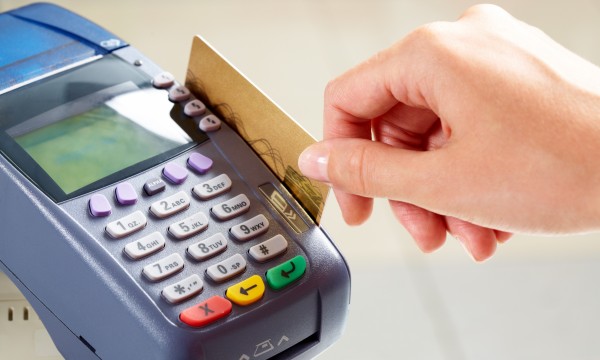advertisement
Tips for Keeping Your Debit Card Safe

In hard financial times anyone will tell you to watch your spending and do your best to keep your budget within your means, which is extra difficult during an inflationary economy like we’ve experienced this year. For many of us, one way we might try to control our spending is to ditch the credit card and only spend money we have using our debit cards.
From a financial advisor position, that might be sound advice, but as an expert in online fraud and cybercrime I have to advise against it. While the way we use our debit cards appears to be nearly identical to how we use our credit cards, there are big differences when it comes to fraud.
Protecting Your Debit Card Vs. Your Credit Card
advertisement
When using a credit card, you are literally spending someone else’s money whereas with a debit card you are directly spending your money, and if your debit card has been stolen that means someone else is also directly spending your money. This leaves little recourse to quickly recover any losses.
Have a dispute over a charge? With a credit card you can dispute the charge, but also refuse to pay the bill until you come to an agreement with the card issuer. With a debit card your money is gone until you can resolve the dispute, which may put you in a situation where you can no longer pay the rent because a criminal has charged a $500 game console to your account.
It’s not that debit cards have no protection, it is because your money is already spent, or at best frozen, while the dispute is being resolved, and banks aren’t exactly famous for being speedy and generous when it comes to settling these situations.
advertisement
Make Your Personal Identification Number [PIN] Unique
If you use a debit card, be sure to choose a strong, unique PIN, and don’t write it down in the same place where you carry the card. If the card is lost or stolen, you need to report it to your financial institution as quickly as possible, ideally within 48 hours. To obtain the phone number of the fraud hotline, you can reference your last bill or go to the card issuers website or app and select the “Contact Us” option.
Unfortunately, the protections afforded debit card users are complicated, but they will limit the damage in the end, if fraud does occur.
advertisement
According to the US Federal Trade Commission, if a card is lost or stolen and reported within two days to the bank, it will limit your damages to a maximum of $50 for any fraudulent transactions that took place before reporting the unsanctioned activity.
If reported after more than two days, but less than 60 days of the charges appearing on your bill, your loss is limited to $500. After 60 days you are on your own, which could include all of the money in your account and possibly money from linked accounts or overdraft protection loans.
Staying Safe Online
For online transactions where your physical card is still in your possession, you will only discover if there has been fraud after you check your statements. Fraudulent transactions reported within 60 days of your statement showing the fraud should be refunded, albeit you are without the money until it is reported and resolved. Card issuers have up to 10 business days to respond to fraud complaints, so you should be prepared to cover your losses while this process unfolds.
It is critical to check your statements at least once a month for fraud, if not more frequently when using a debit card.
If you are a victim of fraud, it is worth contacting your homeowner’s or rental insurance provider to see if you have coverage for your losses.
Alternatives to Debit
Many of us can simply use credit cards instead. Many cards on offer include a zero-liability promise, especially when used for online purchases. Some credit card issuers even offer the ability to generate one-time-use credit card numbers for online transactions to prevent your real card number from being stolen.
For those without easy access to credit you may wish to consider a prepaid, reloadable credit card. Many of the options available make it super easy to load additional money directly from an app, allowing you to only load what you need to the card when you need to use it. This reduces your risk by not putting your entire bank account on the line.
This article was written by Chester Wisniewski, Field CTO – Applied Research at Sophos.